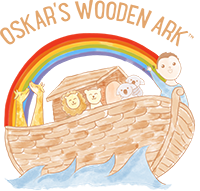Play Through the Ages: Toys and Activities from Birth to Adulthood
Images courtesy of Jess (@learnandbloom) and Kelly (@mumz.world)

How important is play?
There is more to play than fun and games. Play is essential to a child's learning, development and overall wellbeing [1]. A child's play style may evolve as they grow, but play remains an important part of their daily experience of life, relationships and the world around them - whatever their stage of development. Even when we reach adulthood, making the time to take a break from life's everyday tasks to relax and "play" can contribute to positive mental health and a healthy physical form.
How many toys do kids really need?
According to Deborah MacNamara, a clinical counsellor and child development expert, while children absolutely need to play, they don't require lots of toys. “They will explore their environment and examine articles that are interesting to them—from pots and pans to blocks" [2]. The key is to ensure that they have access to items that foster imagination and encourage open-ended play.
Which toys should I choose?
A few carefully chosen toys that meet your child's interests, encourage their imagination and allow for personal interaction may be enough to effectively support their development. But which toys should you invest in? There are a number of factors to consider, such as your child's age, ability and individual interests, as well as the quality and environmental impact of the toys you choose.
At Oskar's Wooden Ark, we offer a wide variety of carefully selected products that encourage children's natural instinct to play and explore, with a focus on supporting all areas of their development. We are equally passionate about offering ideas and inspiration that will hopefully help your child get the most from our high-quality toys and resources.
In our Play Through the Ages series of blog posts, we teamed up with valued customers and friends Jess and Kelly, who invited us into their playrooms to see the toys and activities that they have chosen to keep their children busy and engaged at their different ages and stages of development. We hope their suggestions will inspire you as you make decisions for your own family.
Sources:
1. Ginsburg, Kenneth R. “The Importance of Play in Promoting Healthy Child Development and Maintaining Strong Parent-Child Bonds.” Pediatrics. January 2007. https://pediatrics.aappublications.org/content/119/1/182
2. MacNamara, Deborah. "Rest, Play, Grow: Making Sense of Preschoolers (Or Anyone Who Acts Like One)". Aona Books. 2016





